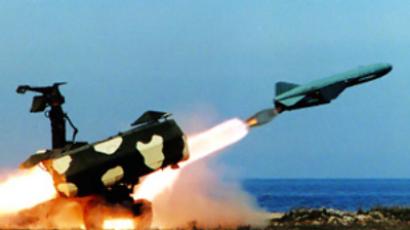Leaders of Germany, France and Russia brainstorm by the sea
Bringing Russia and Europe closer together and showing off their role on the international area — these were the main purposes of top-level talks between Russia, France and Germany held in the French town of Deauville.
Russia's and France’s Presidents and the German Chancellor were focusing on warming ties between Moscow and the EU.
During the so-called “Troika” dialogue, Dmitry Medvedev, Nicolas Sarkozy and Angela Merkel, have discussed major issues concerning European matters and the international community.
The international issues on the agenda included G8 and G20 tasks, stability in the Middle East, the ongoing situation in Afghanistan and Iran’s nuclear activities.
During the talks, President Medvedev decided to attend the NATO summit next month in Lisbon – a move welcomed as a major step towards closer ties with the EU.
Medvedev also said Russia is thinking about NATO’s proposals concerning European missile defense.
Angela Merkel and Nikolas Sarkozy praised President Medvedev's willingness to attend discussions with NATO, stressing that they are all fighting common enemies.
“We're happy the Russian President will be taking part in the Russia-NATO summit in Lisbon,” Angela Merkel said. “That's because NATO's new strategic concept is aimed at co-operation with other countries including Russia. I think Russia has confirmed that we have to fight against terrorism and nuclear weapons. And I think we should tackle these issues together and not be enemies anymore.”
In return, German Chancellor Angela Merkel confirmed Europe is considering Russia's proposals for a new security system in the region.
John Stevens, a former conservative MEP, says the security architecture has begun to change gradually – and this “changing strategic context is leading to a much more equal relationship in NATO”.“This still has a long way to go. The time when NATO was essentially an American operation in which everybody else was a satellite, I think, is now over,” he said.
The three leaders were keen to show they see eye to eye on most international issues, at the meeting aimed at bringing Moscow and the EU closer.
In particular, the Russian leader reaffirmed their actions towards Iran are co-ordinated.
“On Iran we have agreed that we will follow the agreements that were reached earlier,” Russia’s president said. “On the one hand we should stick to the sanctions that were imposed. On the other hand we should prompt Iran to co-operate on all issues.”
Among other topics of the meeting was the possibility of a visa-free regime for Russian citizens who want to visit European countries. The prospect has long been under negotiation.Thomas Klau from the European Council on Foreign Relations said the meeting is important in terms of finding a way to solve existing and future tensions.
“Obviously peace and stability on the European continent are impossible if these two major powers– the EU on the one hand, first of all the leading EU member states France and Germany, and Russia on the other hand – don’t find a positive way to manage political tensions and the economic dynamic on the continent,” he told RT.
Ekaterina Kuznetsova, director of European programs at Moscow's Center for Post-Industrial Studies, believes that Europe wants to integrate Russia into European security system.
“This time President Medvedev announces that he’ll try to pursue his security agenda, that was the first idea that he put on the table when he became president two years ago,” Kuznetsova said. “That means that he will try to discuss the new security architecture. But the main problem is whether it is appropriate to discuss this issue without the American President.”
“This meeting is ahead the European Council summit which is to take place later this month,” she added. “This is very important because right yesterday before Medvedev arrived to Deauville, Sarkozy and Merkel had a meeting together and they agreed on common measures together, on economic architecture in Europe and that was seen by European observers as a sign to show to president Medvedev the unity of Europe and this is very important right because of [the upcoming] NATO meeting in Lisbon, where European leaders want to bring Russia to Lisbon, they want Russia to be present at this meeting and to try to resolve the pending problems of European security.”
“But that doesn’t mean that the EU security architecture will be put in place at this meeting,” Kuznetsova stated. “The situation is very interesting because on the one hand they do not want to change the security system, but on the other hand they want to involve Russia more into the existing security architecture.”
Viktoria Panova from Moscow's State University of International Relations believes “the point [that] this summit was actually held is showing that Russia and Europe need each other.”
“They want to demonstrate that they are relevant to world politics currency wars; that they are not on its margins,” she told RT. “And I think that’s about the significance of the summit: that it was held for the first time since 2003.”













